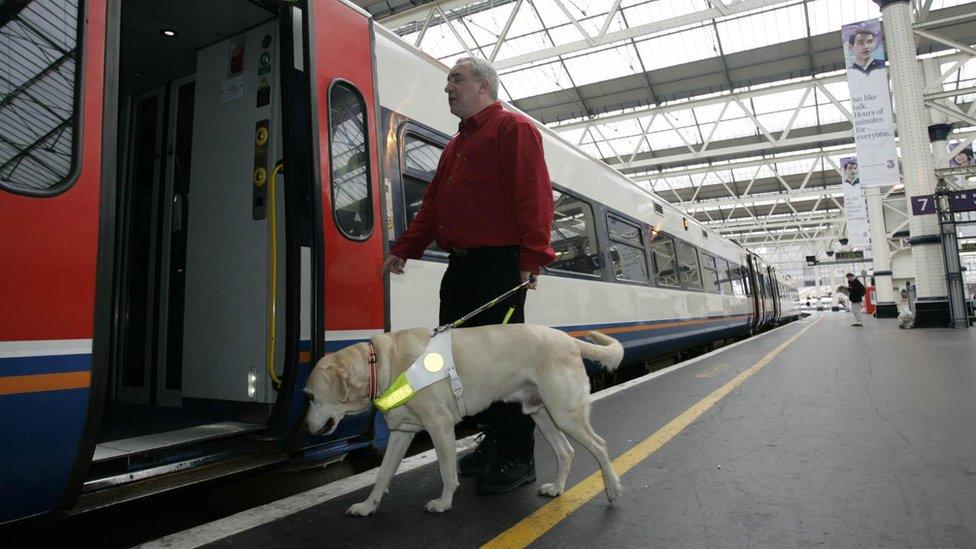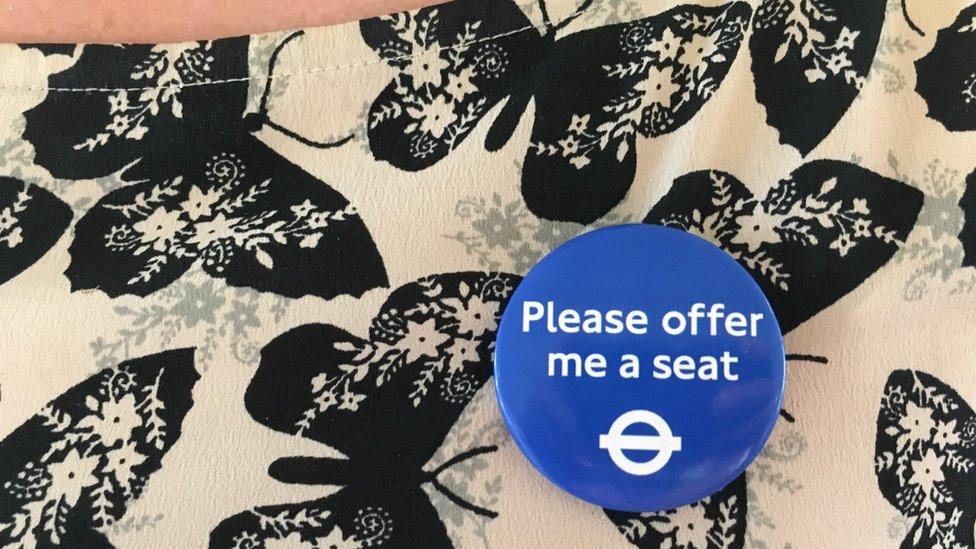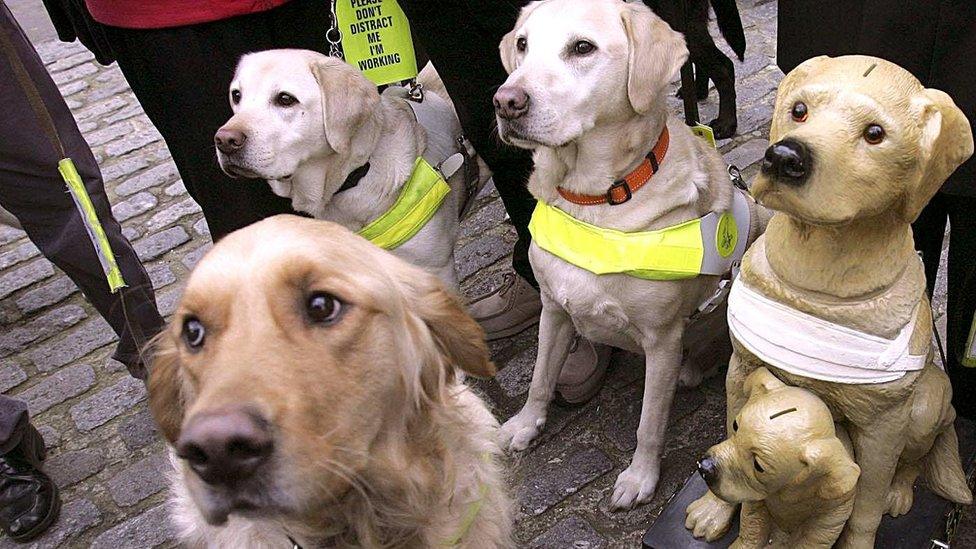People with sight loss 'avoiding rail journeys'
- Published

Guide Dogs said rail was "undoubtedly one of the most complex methods of travel for someone with sight loss"
One in five people with sight loss have missed or avoided a rail journey due to access issues, according to a report.
A lack of support in stations made visually impaired people uncomfortable travelling, charity Guide Dogs said.
Music producer Justin Cunningham, 25, who uses a guide dog, said he had to "jump through hoops" just to get on a train.
Department for Transport (DfT) said it was "working closely with operators" to run an inclusive service.
Some train companies on National Rail services often require 24-hour notice to guarantee assistance for people with disabilities.
"More often than not we're reliant on assistance, but staff need to be trained better," Mr Cunningham said.
"Some times you have to ask members of the public, who are normally helpful but not always."

Justin Cunningham said he had to "jump through hoops" just to get a train
A survey of 2,000 blind and partially-sighted people found 19% had missed important meetings and 13% had been late to see friends and family.
One in 10 also said they had been left stranded on a platform after missing a train, a figure that rose to more than one in three in London.
Clive Wood, engagement officer at Guide Dogs, said rail was "undoubtedly one of the most complex methods of travel for someone with sight loss".
But improving training for staff at stations and increasing awareness "would make a huge difference", he added.
A DfT spokesman said: "We are acutely aware of the difficulties faced by disabled passengers using our railways.
"Since we launched our Inclusive Transport Strategy last year, we have delivered against a number of the commitments including delivery of more than 200 accessible routes into stations."
- Published23 April 2018

- Published28 April 2019

- Published9 February 2018

- Published24 December 2018
